
About Andrew Cusack
 Writer, web designer, etc.; born in New York; educated in Argentina, Scotland, and South Africa; now based in London.
Writer, web designer, etc.; born in New York; educated in Argentina, Scotland, and South Africa; now based in London. read more
News
Blogs
Reviews & Periodicals
Arts & Design
World
France
Mitteleuropa
Knickerbockers
Argentina
The Levant
Africa
Cape of Good Hope
Netherlands
Scandinavia
Québec
India
Muscovy
Germany
Academica
Max Manus
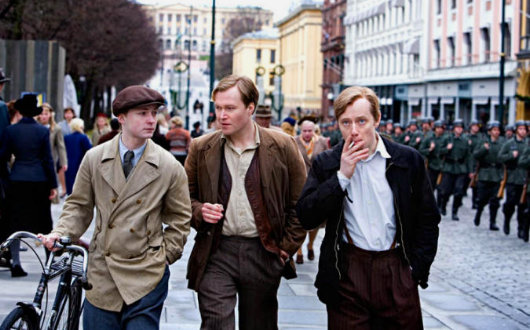
WHEN I WROTE about the Danish film “Flammen et Citronen” in July, I mentioned that it’s not very often that a big-budget period film comes out of Scandinavia, but that recently there’ve been not just one, but two. Readers may have been wondering about the other film which remained unmentioned. I caught the single showing of “Max Manus” during Norwegian Film Week (actually a fortnight) at Scandinavia House on Park Avenue here in New York. This was undoubtedly one of the best films I’ve seen all year, vying with “The Baader-Meinhof Complex” for the top position.

The film begins with newspaper headlines showing the increasingly precipitous situation in Europe from the beginning of the Great Depression onwards. Germany’s economy is ruined and inflation is rampant, Hitler rises to power, Hitler and Stalin invade and divide Poland, Great Britain and France declare war on Germany, and finally Stalin invades Finland. The eponymous hero of our film, Max Manus, is Norwegian but volunteers to fight for Finland when it is invaded by its Nazi-aligned totalitarian neighbour the Soviet Union in the Winter War of 1939-1940.
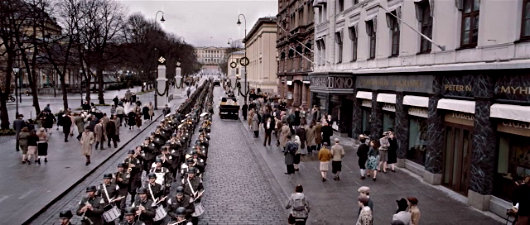
After courageous actions in Finland, Max Manus returned to Norway on the very day the neutral country was invaded by Nazi Germany: April 9, 1940. The main cities were swiftly taken by the surprise attack of the Germans, but the King and his government managed to escape into British exile, along with — rather astonishingly — the entire Norwegian treasury of 240 million kroner in gold; that’s over $665 billion in today’s money. (The story of precisely how they managed this is a fascinating one, but sadly one whose telling will have to wait for another day).
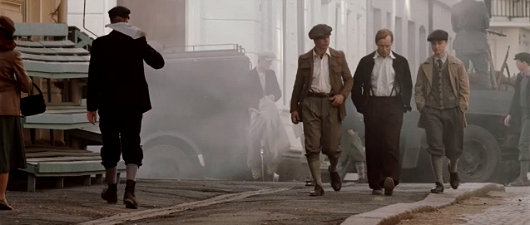

Max and his drinking buddies immediately combine to prepare to undermine the German occupation by any means available.

Their early, haphazard propaganda efforts land Manus in the custody of the Gestapo, which he only escapes by jumping out the window, being hospitalized, and finally escaping from the hospital.


Max and many of his other comrades make it to Scotland, where they are organized into an independent company under the authority of the Norwegian King and his exiled government in Britain.

Here they are trained in all manner of expert sabotage and counter-occupation activities, so that they can be parachuted back into Norway to subvert the Nazi forces who have seized their homeland.


The film shows many of the exploits of Manus’s Lingekompaniet and the various feats of derring-do they accomplished during the Occupation of Norway.
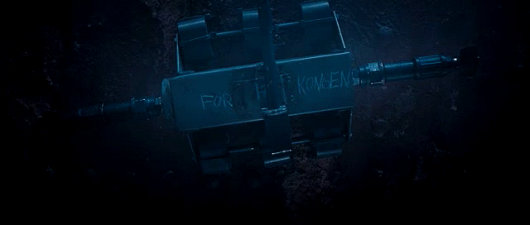
For obvious reasons, the film has been immensely popular in Norway. King Harald V attended the premiere, and already it is estimated that one out of every four Norwegians has seen the film. The King was allegedly moved to tears by the film. Gunnar Sønsteby, the 90-year-old resistance veteran who is the most decorated Norwegian soldier of all time, told Knut Joner, the actor portraying him in the film, “You look like an insignificant dope. You look just like me!”

Scandinavian critics praised the film only begrudgingly. They tend to prefer more experimental or avante-garde forms of cinema, and found “Max Manus” to be traditional and lacking nuance and originality. Nonetheless, at least one major critic hailed it as “one of the best Norwegian films ever made”, and it was also praised for portraying the heroics of an obviously courageous figure without resorting to a simplistic glorification of war. The human toll of warfare is by no means neglected in the film, and forces the viewer to appreciate even more the great sacrifices these resisters made for their king and their country.
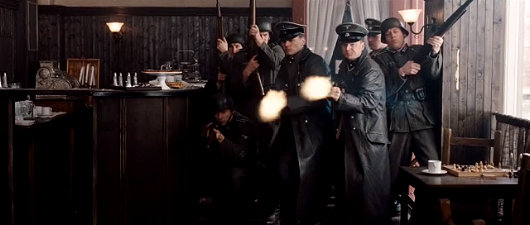

This showing of “Max Manus” was at Scandinavia House, the center for Nordic culture supported by the American-Scandinavian Foundation, and located across the street from the Church of Our Saviour on Park Avenue. The fortnight celebrating Norwegian cinema continues until October 24, after which Scandinavia House’s twice-a-week Icelandic Film Retrospective resumes. No plans for a commercial release of “Max Manus” in the United States have been announced, but the film did have a limited release in Britain in June of this year.

Search
Instagram: @andcusack
Click here for my Instagram photos.Most Recent Posts
- Faithful Shepherd of the Falklands April 8, 2025
- Articles of Note: 8 April 2025 April 8, 2025
- Proportionality Destroys Representation April 8, 2025
- Sag Harbor Cinema March 26, 2025
- Teutonic Takeover March 10, 2025
Most Recent Comments
Book Wishlist
Monthly Archives
Categories



I’ve also seen both films and enjoyed each immensely. What a treat it is to have these two excellent films about the heroes of the resistance movements of two Scandinavian countries become available nearly simultaneously. I found Flame and Citron somewhat darker than Max Manus but really I can’t recommend either highly enough. Terribly fantastic films.
Skål!
Thanks for the review – it’s a shame that there’s no plan to release the film in the US. Would you tell the story about how the King escaped with the entire treasure? It sounds wild!
Rebecca
Thanks for the review (love the rest of the site, too)! I’m renting it on iTunes right now (guess it’s available in Canada, sorry Rebecca ;)